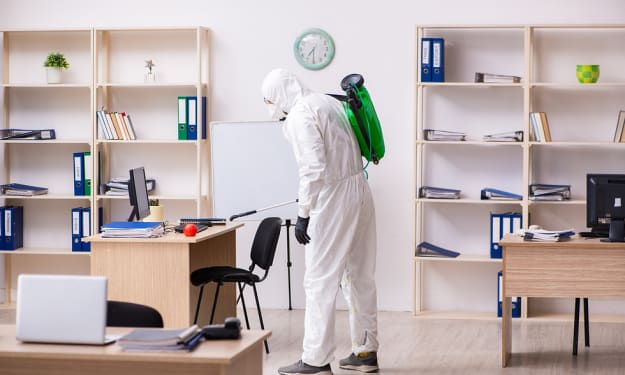
Maintaining a pest-free home is a priority for homeowners everywhere. Dealing with pests can be a nuisance, causing damage to property, spreading diseases, and disrupting our peace of mind. To tackle this problem effectively, employing effective pest control solutions that eradicate existing pests and prevent future infestations is essential. This article will explore various strategies and methods for achieving a pest-free home, ensuring safe and healthy conditions for you and your loved ones.
Understanding Common Household Pests
Before diving into pest control solutions, it's crucial to have a basic understanding of common household pests. Different pest control company in dubai require different approaches for effective control. Here are some prevalent household pests you might encounter:
Ants: These tiny creatures are social insects that can invade your home for food and water.
Cockroaches: Known for their resilience, cockroaches can be found in warm and humid environments.
Rodents: Mice and rats can cause significant damage and spread diseases, making their control a priority.
Termites: These silent destroyers feed on wood, potentially causing structural damage to your home.
Bed Bugs: These pests feed on human blood, causing itchy bites and sleepless nights.
Prevention: The First Line of Defense
Prevention plays a vital role in pest control. Implementing a few proactive measures can significantly reduce the chances of a pest infestation. Here are some preventive steps you can take:
Seal Entry Points: Inspect your home for cracks, gaps, or holes in walls, windows, and doors. Seal them properly to prevent pests from entering.
Proper Food Storage: Store food in airtight containers and clean up spills promptly. This denies pests access to their food source.
Maintain Cleanliness: Regularly clean your home, paying extra attention to kitchens, bathrooms, and other areas prone to moisture and food debris.
Declutter: Remove unnecessary clutter from your living spaces, as pests can use these as hiding places.
Landscaping: Keep your garden well-maintained, trim bushes and trees away from your home, and ensure proper drainage to avoid creating a conducive environment for pests.
Non-Chemical Pest Control Methods
Suppose you prefer a more environmentally friendly approach or have concerns about using chemicals. In that case, several non-chemical pest control methods can be effective. These methods focus on eliminating pests without relying on potentially harmful substances. Here are some non-chemical pest control strategies:
Traps and Baits: Utilize traps and baits specific to the type of pest you're dealing with. This approach is particularly effective for rodents and insects.
Physical Barriers: Install screens on windows and doors to prevent flying and crawling insects from entering your home.
Natural Repellents: Some natural substances, such as peppermint oil or citrus peels, can repel pests due to their strong scents.
Biological Control: Introduce natural predators of pests, like ladybugs for aphids, to help keep populations in check.

Chemical Pest Control Solutions
Chemical pest control solutions may be necessary when non-chemical methods aren't sufficient. These methods involve the use of pesticides to eliminate pests effectively. It's important to use these products judiciously and follow the instructions carefully to ensure safety. Here are some chemical pest control solutions:
Insecticides: These pesticides target specific pests, such as ants, cockroaches, or bed bugs. Choose products labeled for indoor use and use them in areas where pests are active.
Rodenticides: Ideal for controlling rodent populations, rodenticides are available in various formulations, including baits and traps.
Termiticides: When dealing with termite infestations, specialized termiticides must eliminate them. It's advisable to seek professional help for termite control.
Integrated Pest Management (IPM)
Integrated Pest Management (IPM) is an effective and comprehensive approach to pest control. It combines various pest control strategies and techniques to achieve long-term pest management. The key principles of IPM include:
Inspection: Regularly inspect your home for signs of pest activity and identify any underlying causes.
Identification: Determine the type of pest and understand its behavior and lifecycle to implement the most appropriate control methods.
Prevention: Emphasize preventive measures to minimize the need for chemical interventions.
Monitoring: Monitor pest populations to detect any signs of infestation early on and take action promptly.
Control: Utilize a combination of non-chemical and chemical control methods, prioritizing the least toxic options first.
Evaluation: Regularly assess the effectiveness of your pest control measures and make adjustments as needed.
Conclusion
Keeping your home pest-free requires a proactive and multifaceted approach. You can effectively manage and prevent pest infestations by implementing preventive measures, utilizing non-chemical pest control methods, and employing appropriate chemical solutions when necessary. Remember to consider the principles of Integrated Pest Management (IPM) for long-term success. With a pest-free home, you can enjoy a safe and relaxing living environment for you and your family.





Comments
There are no comments for this story
Be the first to respond and start the conversation.